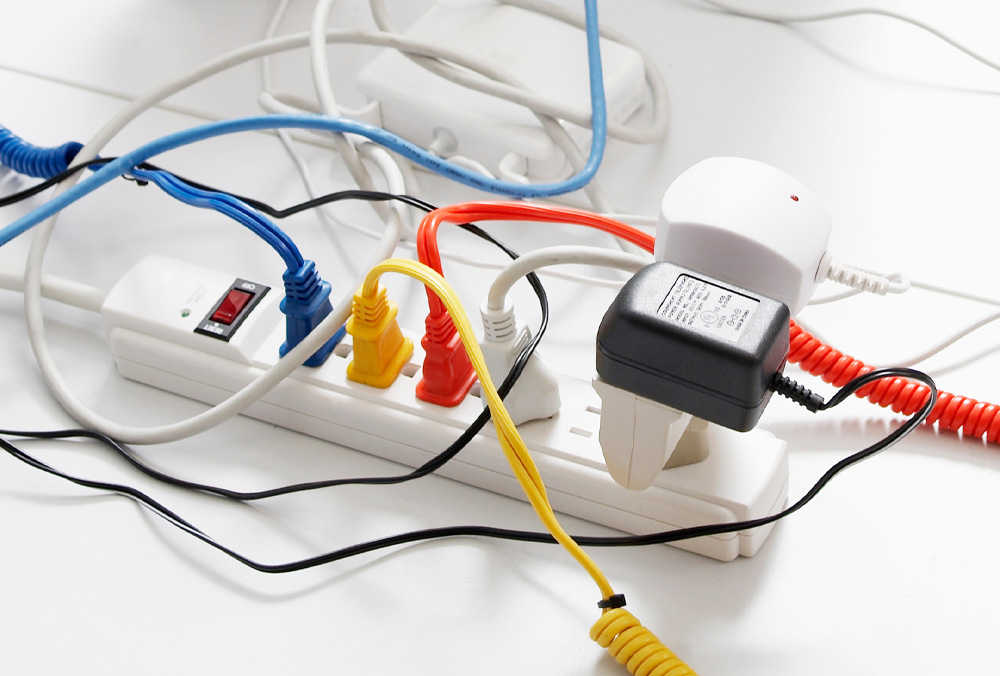Don’t rely on extension cords to solve the problem of inadequate electrical outlets.
Electrical overloads can occur when your home draws more electricity than a circuit can safely handle. When a circuit receives too much electricity, it causes the circuit breaker to trip, shutting the entire circuit's power off. Breakers are critical components to the circuit’s safety. If there were no breakers in the circuit, an overload would occur, causing the wires to overheat. That overheating could lead to a fire. There are several signs that indicate an overloaded circuit. Among them:
- Flickering, blinking, or dimming lights.
- The outlet switch covers are warm to the touch.
- Burning odors from outlets or switches.
- Frequently tripped circuit breakers.
- Crackling, sizzling, or buzzing from receptacles.
- Mild shock or tingles after touching appliances, receptacles, or switches.
- Power tools, appliances, or electronics seem to lack adequate power.
If any of these things are occurring, head to your circuit panel. It’s usually located in the basement or garage. Check to see if any of the switches in the panel have been tripped or partially tripped. Turn them off — then back on again.
How to reset a tripped breaker
Here’s what to do if your breaker is tripped:
- Unplug or turn off appliances in the room.
- Find your main breaker panel and open the cover.
- Locate the tripped breaker or blown fuse. A tripped circuit breaker will be in the “off” position or in a middle position between “on” and “off.”
- To reset the breaker, switch it to the "off" position and then back to "on."
If the problem persists, there may be more-serious issues. Contact an electrician to identify the problem.

